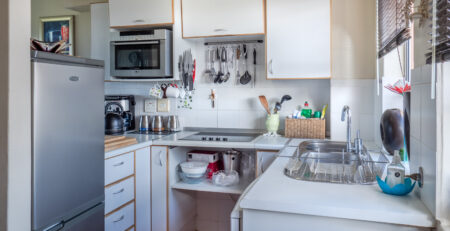How to Conduct Bi-Annual Rental Property Inspections
If you’re a landlord in Ontario, regular property inspections aren’t just a best practice—they’re a must. Not only do they help you protect your investment, but they also keep your tenants happy and your property compliant with local bylaws. The smartest investors conduct bi-annual inspections—once in the spring, once in the fall. These seasonal checkpoints allow you to spot wear and tear, prepare for changing weather, and catch small issues before they become big, expensive problems.
But let’s be clear: this isn’t just a quick walk-through. Done right, bi-annual inspections help you plan maintenance, ensure tenant care, and avoid emergencies.
Let’s walk through what to do—and what to look for—inside and outside your single-family home or duplex.
📅 When & How to Schedule Inspections in Ontario
In Ontario, you must give tenants 24 hours written notice before entering their unit. The notice must include:
-
The date and time of the inspection (must be between 8 a.m. and 8 p.m.)
-
The reason for entry (e.g. “routine bi-annual inspection”)
-
Your intention to enter, not just to “request permission”
Aim to give at least a week’s heads-up verbally, then follow up with the written notice.
We recommend scheduling inspections:
-
Spring: April or May – post-winter checkup, prep for summer
-
Fall: October or early November – pre-winter readiness
✅ Complete Bi-Annual Rental Property Inspection Checklist
Exterior
-
Check for roof damage or missing shingles
-
Clean eavestroughs and downspouts
-
Inspect foundation for cracks or signs of water entry
-
Ensure all exterior lights work (especially motion-sensor and porch lights)
-
Look for signs of pests (nests, holes, droppings)
-
Inspect fencing, gates, and decks for damage or wear
-
Check driveways and walkways for cracks or uneven areas
-
Test outdoor faucets and hoses for leaks (spring only)
-
Winterize outdoor taps and irrigation systems (fall only)
-
Ensure windows and doors seal properly and screens are intact
-
Clean up and inspect outdoor storage (garages, sheds)
Interior – General
-
Test all smoke and CO alarms (replace batteries if needed)
-
Check furnace filters and remind tenants to change them monthly
-
Inspect ceilings and walls for signs of leaks or moisture
-
Look for mold in kitchens, bathrooms, and basements
-
Ensure handrails, banisters, and stairs are safe and secure
-
Test windows and doors for proper sealing and locking
-
Confirm tenant is not tampering with safety systems (e.g., removing detectors)
-
Inspect flooring for trip hazards, especially in high-traffic areas
-
Look for unauthorized alterations or damage
Kitchens & Bathrooms
-
Check under sinks for leaks or signs of mold
-
Test exhaust fans for functionality and cleanliness
-
Inspect caulking around tubs, showers, and sinks
-
Ensure toilets flush properly and don’t run continuously
-
Check water pressure and hot water function
Mechanical Systems
-
Furnace: inspect and schedule service annually (fall)
-
AC: test operation before summer begins (spring)
-
Water heater: inspect for leaks and sediment buildup
-
Electrical panel: look for signs of overheating or tampering
-
Plumbing: listen for noisy pipes or check for slow drains
-
Check sump pump and backup battery if applicable (especially spring)
Unique Features (as applicable)
-
Pools: check cover, pump operation, and water levels; confirm tenant is following safety protocol
-
Fireplaces: ensure vents are clear and inspect firebox (wood-burning or gas)
-
Laundry units: clean lint traps, check dryer vents for blockage
-
Basement suites: inspect fire separation, exits, and air circulation
🕐 Spring vs. Fall Inspections: What’s Different?
Spring:
-
Focus on damage caused by snow, ice, and freezing
-
Open up outdoor systems (hoses, AC, irrigation)
-
Clear yard debris and prep gardens/landscaping
-
Check for signs of winter water ingress (in basements especially)
Fall:
-
Shut down outdoor water
-
Prep furnace for colder months
-
Seal gaps and insulate where needed
-
Ensure snow removal tools are accessible
-
Prep tenants with emergency contacts and winter instructions
How to Use This Checklist
Print it (or pull it up on your phone), bring it on-site, and walk through each item room by room. Don’t rush it—this isn’t a box-ticking exercise. Take notes, document with photos, and follow up with a summary email to your tenants outlining any issues found and next steps.
Inspections help set the tone that you care about the property and expect the same from tenants. They also build trust when done respectfully and professionally.
Want help managing inspections, maintenance, or tenant communication? At Rent Panda, we support landlords with everything from leasing to property care. Reach out today and let’s protect your investment—together.










